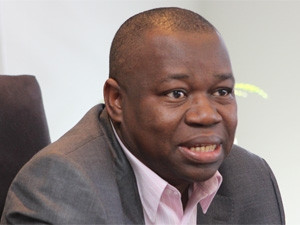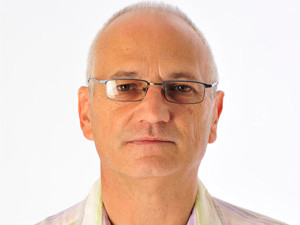
The fight against e-tolling continues with just days to go before motorists have to start paying to use Gauteng's freeways.
While business organisations are resigned to the inevitable implementation of electronic fee collection, largest trade union federation the Congress of South African Trade Unions (Cosatu), the Justice Project of SA (JPSA), and the legally defeated Opposition to Urban Tolling Alliance (Outa) have not thrown in the towel yet.
Government has forged ahead with the controversial system in the face of overwhelming opposition from big business, Cosatu and civil society. However, transport minister Dipou Peters recently announced next Tuesday (3 December) as the go-live date, which led to 100 000 e-tags being sold to motorists.
South African National Roads Agency (Sanral) spokesman Vusi Mona says a total of 728 360 tags have been sold, with a "marked" increase in purchases since the go-live date was set earlier this month.
Sanral, which is expecting a last minute rush on tags, says the number of people visiting service centres has increased, although it did not provide figures to back this up. Mona notes as the implementation date gets closer, perceptions are changing. "People are no longer asking why, they are asking how."
Don't give up
However, Outa chairman Wayne Duvenage is continuing with the organisation's call for the public to "resist and reject a law which has been implemented in a manner that works against the best interests of the people for whom it is intended to serve".
Motorists remain vehemently opposed to the electronic collection of fees to use the bulk of Gauteng's freeways, says Duvenage. "Virtually all snap polls and surveys within the social media space indicate 90%-plus rejection of e-tolls and some indicating 85% or more of the public may not get e-tags."
Duvenage adds Outa will soon release details of its strategy to "empower society with knowledge of their rights, plus legal advice in cases of being stopped by the so-called e-toll police and finally, the support of a strong legal counsel and team to tackle the case of the first person who is summonsed for non-payment of their e-toll bills".

Sanral CEO Nazir Alli has said systems are in place and ready to handle e-toll offenders. He said a "normal debt collection process" will be followed, which includes invoicing, a seven-day grace period, reminders, summons and, finally, court proceedings.
However, JPSA chairman Howard Dembovsky says there is still no clarity as to how offenders will be prosecuted. "As a result of the lack of clarity being provided by the Department of Transport and Sanral, coupled with the National Prosecuting Authority's deafening silence with respect to how and when transgressors will be prosecuted, JPSA has been inundated with queries from members of the public, as well as from the media to provide such clarity."
Dembovsky says the JPSA has not been able to provide much more than an "educated guess". This is because the intended prosecution of e-toll transgressions does not appear to be following the same procedures as the prosecution of other road traffic and toll transgressions. A new dynamic has also been added to the equation - that of the involvement of an undefined "debt collection process" prior to instituting prosecution, he says.
Because of this situation, JPSA has "little" choice but to instruct its attorneys to write to several departments requesting clarity by noon today, says Dembovsky. If this does not happen, the association has threatened to approach the High Court for such clarity.
More questions
How offenders will be prosecuted is not the only issue that has yet to be resolved. Duvenage says Sanral is again misleading the public in several areas, including how much money will go out of the country, how many individual e-tags have been sold, and how many motorists will really face the R450 monthly cap for those with e-tags.
Duvenage says Sanral has yet to confirm how many individual road users have purchased an e-tag. He says the bulk of tags sold so far include purchases by large fleet operators, banks, car rental companies, government and leasing companies.

Sanral's claim that only a percent of motorists will reach the monthly cap is also misleading, says Duvenage. He says around a million cars use the freeways daily, and estimates peg the percentage of those who will face a bill of R400 or more at 25%. "We simply don't believe their rhetoric in this space."
Duvenage has also challenged Sanral's statement that the bulk of money collected through e-tolls will stay in SA. Citing a media report, he says 22c of every rand will go to Kapsch, which has a 65% stake in the Electronic Toll Collection joint venture that will manage the system.
This was in response to Mona's statement that, for every rand collected, only 17c goes towards the cost of managing the toll operation and collecting tolls. The balance goes to several needs, including servicing the loan for the R20 billion project, lighting, intelligent transport systems and its incident management services, he says.
"The 17c covers all the costs associated with collecting tolls including salaries, bank transaction costs, toll infrastructure maintenance costs, telecommunications costs, postage costs, municipal rates and taxes," says Mona.
Resigned
Although snap polls show opposition to e-tolling, business organisations polled by ITWeb are acquiescent to the inevitable implementation of the electronic system.
The South African Chamber of Commerce and Industry is opposed to e-tolls because of the high collection costs and the burden the system will be on the economy. Yet, CEO Neren Rau says the chamber will advise its members to abide by the law once the system goes live because of the "high cost of non-compliance".
Cape Chamber president Janine Myburgh adds e-tolling is ill thought through and will inhibit economic growth. Although it does not support the system, it will not incite or encourage members or the business community to transgress legislation or, for that matter, commit a crime.
Myburgh explains the punitive sanctions for not abiding by e-tolls is "very high". The chamber has 3 000 members, most of which are small and medium companies.
Business Unity SA, which will closely watch the implementation of the system in the coming weeks, says it supports the principle of a user-pays concept to recoup infrastructure costs. However, it does not agree that the Gauteng e-toll system is the best way to finance urban road improvements.
The 3 000-member Johannesburg Chamber of Commerce and Industry says although roads must be paid for, it has an issue with the "questionable collection mechanism".
National Small Business Chamber CEO Mike Anderson says while it, and its 67 000 small and medium enterprise (SME) members, oppose the system, it will comply with the law. He says SMEs face varied financial challenges, and any additional financial burden has a negative effect on the growth and sustainability of a sector that is the "mainstay" of the economy and the future of job creation.
Share